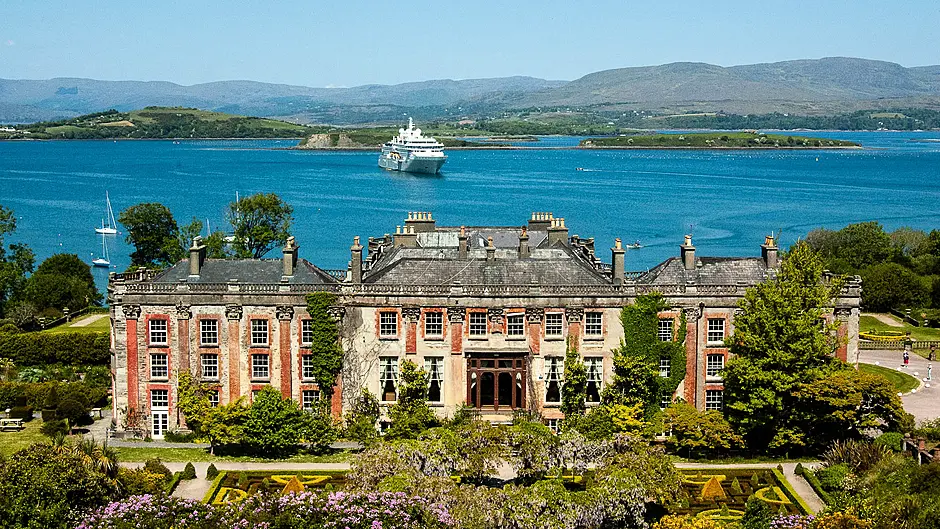
Back in the gentler days of Twitter, before it became a screaming hall of fake news and manosphere-adjacent monologues, I had a weekly tradition.
Whenever a fresh piece of post-Brexit nonsense emerged (usually via Boris Johnson), I’d post: ‘Brexit’s going well, isn’t it?’ It was a small, passive-aggressive act of catharsis and this week, the urge to resurrect it returned.
Because we’ve just seen what’s being called a ‘reset’ in EU–UK relations, a treaty aimed at cooling the friction that’s left everything from seed potatoes to scallops mired in bureaucracy.
It’s one of Starmer’s first major deliveries as prime minister, and predictably, the red tops are shouting ‘Surrender!’ while Brussels and the Labour Party call it ‘progress’.
There are small wins. Brits may soon use e-gates in EU airports again, shaving 40 minutes off the traditional queue beside a confused stag party from Doncaster.
Pet travel’s getting easier (great news for spaniels with villas in Marbella), and certain long-banned meat products will be allowed back on EU shelves, if they survive the paperwork.
Some of the more absurd border checks on plants and animals are being scrapped, a welcome shift for anyone who’s tried to explain a sausage roll to a French customs official in Calais.
Talks are also resuming around Erasmus and a youth mobility scheme.
For Irish fishermen, the deal means access to British waters until 2038 - a third of our usual catch.
But don’t expect champagne corks popping in Castletownbere; it’s a stay of execution, not a windfall. Still, the most quietly significant part of the deal may not be about cheese or cod, but security. A new pact allows the EU and UK to resume cooperation on defence tech, intelligence and shared resources.
This feels timely given that Russia’s been circling, and the Americans increasingly appear to be turning their chairs away from the table. British firms may also get access to the EU’s €150-billion defence fund (handy) given how expensive submarines and missile systems tend to be.
And frankly, with Russian subs sniffing around gas and communications links off the Irish coast, I’m not sure how we’d respond if things escalated. Beyond lobbing wheels of Gubbeen from the cliffs, we’re a little short on ideas.
Whether this all adds up to a real ‘reset’ is another matter. Reform UK’s recent gains and the unavoidable presence of Nigel Farage suggest that the Brexit hangover is far from cured. It’s starting to feel like Starmer’s Labour, like Biden’s presidency, is just pressing pause and not rewinding the tape. For those of us who came of age in the 1990s - interrailing, drinking lukewarm beer on a ferry, and believing history had ended - this week’s news brings a rare flicker of optimism. But that version of Europe, like the Empire the Brexiteers pine for, may now belong entirely to fiction.
Last match of the day
Gary Lineker will step down from Match of the Day this weekend, most likely with a carefully judged final monologue. But the real ending came quietly, days earlier, with an emoji.
It began with an Instagram repost: a video from a pro-Palestine group claiming to explain Zionism ‘in under two minutes’, accompanied by an emoji of a rat, an image long associated with antisemitic propaganda particularly in Nazi-era cartoons.
He later deleted it, apologised for the ‘hurt and upset’, and said he hadn’t recognised the symbolism. But the storm was already in motion. In an instant, the BBC’s most recognisable sports presenter was once again the story.
Of course, Lineker has been soft-launching his exit for a while, building a wildly successful podcast empire and moving beyond the presenter’s chair. But it’s telling that what tipped the balance wasn’t something he said, but something he appeared to imply.
We’ve now reached a moment where meaning is mined from silence, and symbols speak louder than statements. Words used to get you in trouble. Now it’s the pictures of the words you didn’t say. It’s rather bizarre that acts of genocide go unpunished on one side of the world, and a clumsy post can end a broadcaster’s career over here.
What a world, eh?
The daily dose of awe
Amid the Brexit resets and emoji meltdowns, I came across a quiet piece of news this week: a Yale study showing that daily doses of awe can reduce stress, depression, and even inflammation. Awesome, I thought to myself.
Of course, we are all surrounded by awe-inspiring things every day of the week, but we are not well-practised in nurturing a sense of it, particularly in this more secular age. It’s not like you can pop down to the local Spar for a punnet of awe, is it?
This week, I’ve been making an active effort to find these small moments in the everyday. Sitting with my wife and kids at the dinner table and seeing them all chatting and joking, taking it in like I’m watching some old home-camera footage. Watching the seeds my daughter found in the school garden starting to sprout and grow on our windowsill. Taking a cycle out the coast and taking in the smell of the sea on these long glorious evenings we’ve been having.
We spend so much time reacting now, to headlines, to posts, to things people may or may not have meant. This week I plan to take a leaf from the EU-UK negotiators and do a little reset myself. I plan to look up, stay quiet, and try to appreciate the vast, beautiful strangeness of the world around us.
Don’t worry, we’ll get back on the situation with the Cork hurlers next week.







